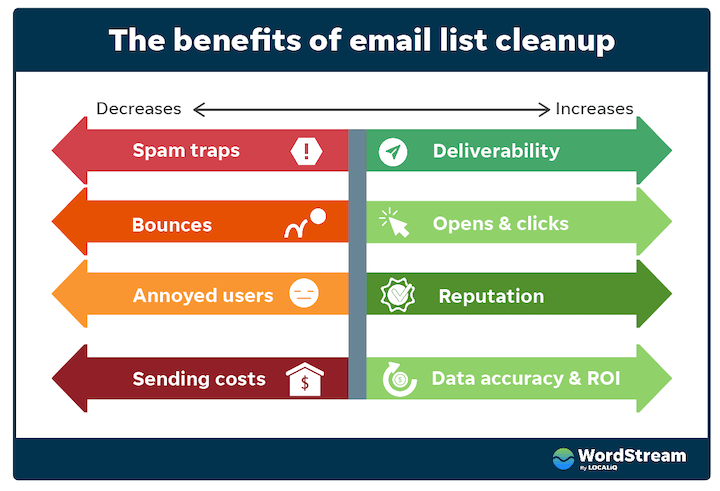Great Advice To Deciding On A Hematologist Email list
Wiki Article
What Do I Need To Think About When Purchasing A Hematologist Email List?
To ensure your hematologist list is effective, pertinent and precise, as well as compliant to the law, you need be aware of several crucial aspects. These are the most crucial considerations to consider. Data Accuracy and Quality
Source of Data - Confirm that the provider of the email list has reliable sources. These include professional directories and medical databases. Hematologists can also opt in to receive emails once they've verified their consent. The accuracy of the contacts will determine the validity of the list.
Verification of updates and data Ask about the verification of data process used by your provider. Emails should be validated to remove inactive or incorrect addresses. As healthcare professionals are likely to move between positions and institutions, it is vital that the list is constantly kept up to date.
Segmentation and Specialization: Be sure that the list is tailored to hematologists. It can also be further segmented by subspecialties, for instance (e.g. pediatric hematology, oncology), location, years of experience, or hospital affiliation. A well-organized list are a great way to target your outreach efforts more effectively.
2. Legal Regulations
Data Privacy Laws: Ensure that the list of addresses is in compliance with the regulations governing data protection, such as the General Data Protection Regulation (GDPR) in Europe, California Consumer Privacy Act (CCPA) in the U.S., and other applicable laws. The addresses that are collected from email must have the permission of all those who are involved.
CANSPAM Act – in the U.S.a make sure that your email address is in compliance with the CANSPAM Act. It governs electronic commercial communications. Non-compliance can lead to penalties and your emails may be flagged as spam.
Opt-in Consent : The list of email recipients should only contain hematologists who have specifically agreed to receive email from a third-party. Unsolicited emails sent to individuals without their consent could lead to low engagement and legal issues.
3. Provider Reputation
Choose a trustworthy provider. To determine if the business is trustworthy, search for testimonials, reviews as well as case studies. A well-established company with a track record of delivering top-quality and accurate data is more likely.
Transparency. Choose a service provider that's transparent about how and where data is collected. You should avoid providers that don't provide clear information about methods used to collect data.
Customer Service: It is important to choose a service provider that has a good level of customer support. Support is vital if encounter issues with your configuration or technology or need to alter your checklist or have concerns about compliance.
4. Cost and return on investment (ROI).
Pricing Model: Pay attention to the pricing model. Are you paying a flat cost or a pay per -contact? Check that the price aligns to the potential ROI. Also, you must balance the quality of your list and the amount with the marketing budget.
Refund or Replacement Policy: A reputable supplier will offer a return or replacement policy for inactive or obsolete email addresses that are not valid or outdated. Make sure you understand any conditions and terms before you purchase.
Value for money Comparison of options like segmentation choices and warranties on data accuracy together with the price. The list that has the lowest price may not always be the most useful when its data quality is short.
5. Data Ownership and Usage
Single Use in contrast to. Understanding the terms of usage is essential. You might only be allowed to use a list once for a campaign. Other providers offer you unlimited rights to use.
Exclusive vs. Shared Lists: Decide whether your email list is private or shared. Exclusive lists have a higher rate of engagement since the contacts will be more likely to not receive multiple marketing emails.
6. Data Integration and Format
Compatibility With CRM or Email Tools - Ensure that the email list is easily integrated with your CRM or email marketing tool. The list must be available in standard formats like CSV or Excel to make it easy to integrate.
How easy is it to filter the list and manage it? Lists that are difficult to work with or segment may reduce the efficiency of your marketing campaigns.
7. Ethical Questions
Relevance of Email Outreach to Hematologists. Be sure that your outreach emails are relevant to Hematologists. Sending content that is not appropriate to their expertise may negatively impact your brand's reputation and result in lower engagement.
Avoid spam practices: Do not bombard recipients with a lot of emails. Sending out too many emails too often could result in complaints about spam that could harm your sender's reputation.
Conclusion
An email list of hematologists can be a powerful way to market your business specifically to specific audiences, however you need to be careful when you purchase one. To ensure that you're receiving a list that is of top quality and accuracy, you should focus on the quality of the data as well as the conformity with privacy laws and the track record and reputation of the company. Prioritizing segmentation and legal compliance and ethical marketing can help you increase your ROI and ensure your brand's image. See the top rated hematologists email list for site info.

What Factors Should I Take Into Consideration Prior To Buying An Nurses Email List?
Take note of these essential points when buying an inventory of nurses. This will guarantee the list's accuracy, compliance with regulations and effectiveness for your outreach or marketing campaign. Here are a few key items to keep in your mind: 1. Quality of data and accuracy
The Data Source: Make sure that the list of email addresses comes from trustworthy and authentic sources such as health directories, nursing associations licensing bodies, or other associations. Avoid lists generated through untested methods like scraping data as they could contain outdated or incorrect data.
Checking and updating frequency: Verify that the service cleanses and updates the data regularly. Inactive, invalid and duplicate email addresses must be removed from a trustworthy email list. Data accuracy is important to ensure a better delivery experience and a lower bounce rate.
Segmentation Options: A good nurses email list should permit segmentation based on criteria like nurses' specialties (e.g., registered nurses and nurse practitioners and critical care nurses), locations (state city, region, state) and employment environments (hospitals or clinics, private practices). This segmentation will allow you to target and engage your audience more efficiently.
2. Legal Regulations
Data Privacy Laws: Ensure that your list is in compliance with data protection regulations such as the General Data Protection Regulation (GDPR) in Europe and the California Consumer Privacy Act (CCPA) in the U.S., and other regional or local privacy laws. To avoid penalties or damage to your brand reputation it is crucial that the email address collection be legally authorized and backed by consent.
CAN SPAM Act Compliance: If you are conducting email campaigns within the U.S.A. it is essential to ensure that your list is in compliance to the CAN SPAM Act. This includes clear opt-out mechanisms as well as non-deceptive subject line lines and accurate sender information. Any violations can be punished with large fines and may damage your reputation.
Consent to Opt-in: The list of addresses must only include those who have signed up to receive emails from third party. The list will only include nurses who have agreed to receive communications from third parties.
3. Provider Reputation
Reputable Vendor: Select one that has a proven track record in delivering high-quality, accurate email lists. You can evaluate the credibility of a company through reviews or testimonials. You can also look at case studies.
Transparency: The service provider must be transparent about how they collect and validate data. If the provider cannot clearly explain how they gather and verify data, this may indicate that their data isn't reliable or accurate.
Customer Support: Select a service provider who offers a robust level of customer support. You will get better support in case you encounter any issues like data integration issues or concerns about regulatory compliance.
4. Cost and return on investment (ROI).
Understand the pricing structure. Find out if the company charges a flat rate, depending on the number of contacts or the list size. Be sure that the cost is compatible with your marketing budget and objectives.
Refund or Replacement Policy: Ask about the provider's policy regarding invalid email addresses. Most reliable providers provide refunds or replacements on certain percentages of non-deliverable or invalid email addresses, in order to make sure that you receive exactly what you spend.
Do not focus on price alone and instead focus on the value. While it may be tempting to pick a cheaper list, quality must always be a priority over price. A well-organized and precise list will lead to better engagement, and a greater ROI on your investment.
5. Data Ownership and Usage
It is a matter of determining whether a list is designed for use on a limited basis or if multiple uses are possible. Lists for single-use are typically less expensive than multi-use lists, however if you are planning on running ongoing campaigns via email using a list, purchasing one you can reuse may offer more value.
Shared lists vs. Exclusive: Shared lists: Decide which list is exclusive to you, or is shared with other customers. Exclusive lists are more efficient because they prevent excessive saturation, which can increase the rate of engagement.
6. Data Integration and Format
CRM Compatibility. Check that your list is formatted in a way compatible with the email marketing system or platform you're using, such as CSV. This will ensure a smooth integration process.
Ease Of Segmentation The list should have been organized in a manner to make it possible for you to filter or divide the information based on various parameters. This will make it easier to focus on specific groups of nurses with specific messages, enhancing your campaign's effectiveness.
7. Ethical concerns
Relevance of Outreach - Nurses have busy schedules and require important, pertinent information. Be sure to connect your message to their work. For example, healthcare products, opportunities for continuing education, or advances in the field. Beware of promotional and irrelevant content. This can harm your brand's reputation.
Beware of Spam practices - Take care not to overwhelm your recipients with too many messages. Sending too many irrelevant or excessive emails may lead to increased unsubscribe rates and spam complaints. It could also harm your sender's reputation.
Conclusion
Prioritize the quality of data as well as legal compliance and the reputation of the vendor before purchasing a list of nurses' email addresses. Make sure the list is segmented, continuously updated, and is adhering to the relevant privacy laws. You can increase engagement by investing in a well-targeted, high-quality database and delivering relevant messages that are targeted to the target audience. Take a look at the top nurses email list for blog examples.
